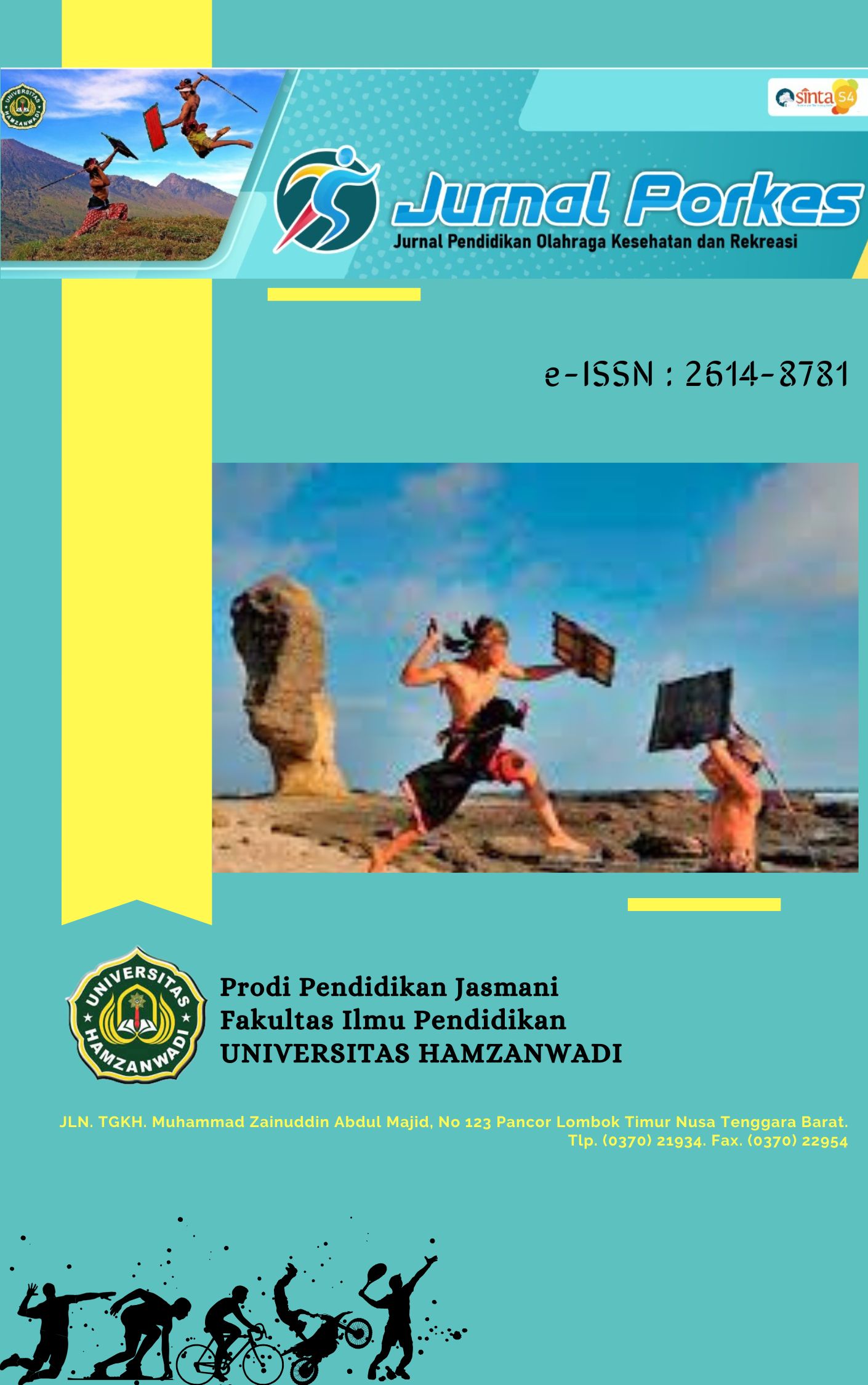Digital Marketing Strategies and Increasing the Economic Value of the Sports Industry: A Global Literature Analysis
DOI:
https://doi.org/10.29408/porkes.v8i2.30041Keywords:
Digital marketing; economic value; marketing strategies; sports industry; social mediaAbstract
With technological advancements, the sports sector increasingly relies on digital marketing, including social media usage, data-driven marketing, and other digital technologies, to expand reach and boost revenue. This study aims to analyze how digital marketing strategies contribute to enhancing the economic value of the sports industry. This research uses a systematic literature review approach to analyze various relevant studies, focusing on the contributions of digital marketing to revenue, fan engagement, and brand loyalty in the global sports industry. The results show that digital marketing strategies, such as social media engagement, content marketing, augmented reality (AR) use, and hybrid business models, are highly effective in increasing the economic value of the sports industry. Additionally, the development of digital infrastructure and the use of advanced technologies also contribute to market expansion and enhanced fan engagement. This study also identifies challenges related to digital piracy and the lack of cohesive strategies in some sports organizations. Therefore, the effective implementation of digital marketing strategies can strengthen the sports industry's position in the global market.
References
Dong, B. (2022). Dynamic Modeling of High-Quality Development of Sports Industry Driven by Big Data Digital Economy. Mobile Information Systems, 2022. https://doi.org/10.1155/2022/9131081
Gupta, S. (2024). Study on the Effectiveness of Marketing through Sports. Indian Journal of Yoga Exercise & Sport Science and Physical Education, 39–43. https://doi.org/10.58914/ijyesspe.2024-9.1.6
Haniva, D. T., Ramadhan, J. A., & Suharso, A. (2023). Systematic Literature Review Penggunaan Metodologi Pengembangan Sistem Informasi Waterfall, Agile, dan Hybrid. JIEET (Journal of Information Engineering and Educational Technology), 7(1), 36–42. https://doi.org/10.26740/jieet.v7n1.p36-42
Jinga, G. (2024). Sports Marketing and Management: Strategies for Success in the Digital Age. Review of International Comparative Management, 25(3), 586–594. https://doi.org/10.24818/RMCI.2024.3.586
Kim, D., & Ko, Y. J. (2019). The impact of virtual reality (VR) technology on sport spectators’ flow experience and satisfaction. Computers in Human Behavior, 93, 346–356. https://doi.org/10.1016/j.chb.2018.12.040
Kumar, L., & Bagchi, A. (2020). Comparative analysis of digital marketing strategies for live streaming of sporting events. Annals of Tropical Medicine and Public Health, 23, 231–725. https://doi.org/10.36295/ASRO.2020.231725
Lu, L., Yang, S., & Li, Q. (2024). The interaction of digital economy, artificial intelligence and sports industry development--based on China PVAR analysis of provincial panel data. Heliyon, 10(4). https://doi.org/10.1016/j.heliyon.2024.e25688
Santomier, J., Dolles, H., & Kunz, R. (2023). The National Basketball Association’s (NBA) Digital Transformation: An Explanatory Case Study. Quality in Sport, 11(1), 63–80. https://doi.org/10.12775/qs.2023.11.01.005
Sbrighi, A. (2024). Leveraging The Power Of Deep Tech Within The Realm Of Digital Marketing: An Explorative Insight Into The Relationship Between Artificial Intelligence And Sports Fan Engagement. https://unitesi.unive.it/handle/20.500.14247/8306
Sun, X., Su, L., Zhou, B., Bu, T., & Zhang, Y. (2024). Systematic evaluation of integration between China’s digital economy and sports industry: Two-stage grey relational analysis and vector autoregressive model. PLoS ONE, 19(5 May), 1–25. https://doi.org/10.1371/journal.pone.0303572
Syadzwina, A. W. W., Cangara, H., Unde, A. A., & Bahfiarti, T. (2024). Komunikasi Olahraga: Promosi dan Pemasaran Olahraga di Era Digital. Jurnal Audiens, 5(3), 551–564. https://doi.org/10.18196/jas.v5i3.491
Tao, P., & Tao, P. (2025). How Does the Sports Industry Promote Economic Development? 0, 87–92.
Wahono, R. S. (2020). Systematic Literature Review: Pengantar, tahapan dan studi kasus. Romisatriawahono. Net. https://romisatriawahono.net/publications/2016/wahono-slr-may2016.pdf
Wei, X., Zhang, J., Lyulyov, O., & Pimonenko, T. (2023). The Role of Digital Economy in Enhancing the Sports Industry to Attain Sustainable Development. Sustainability (Switzerland), 15(15), 1–21. https://doi.org/10.3390/su151512009
Wisnawa, I. M. B. (2024). Era Baru Loyalitas Wisata: Menggabungkan Digitalisasi dan Autentisitas dalam Pemasaran Destinasi. Journal of Tourism and Interdiciplinary Studies, 4(1), 1–16. https://doi.org/10.51713/jotis.2024.411
Wu, C. C. (2024). The Impact of Sports Industry Output on Economic Growth: Evidence from China. Journal of the Knowledge Economy, 0123456789. https://doi.org/10.1007/s13132-024-02218-y
Ziming Liu. (2021). Management of Sports Industry : Moving to Economic Development. Marketing and Management of Innovations, 4, 230–236. https://doi.org/10.21272/mmi.2021.4-18.This
Downloads
Published
How to Cite
Issue
Section
License
Copyright (c) 2025 Andy Widhiya Bayu Utomo, Amin Pujiati, Adit Tarauna Cholis Asyhari, Sylvana Yaka Saputro, Salmon Runesi, Ramadhany Hananto Puriana, Mohammad Syaffrudin Kuryanto

This work is licensed under a Creative Commons Attribution-ShareAlike 4.0 International License.
![]()
Jurnal Porkes is licensed under a Creative Commons Attribution-Share Alike 4.0 International License







